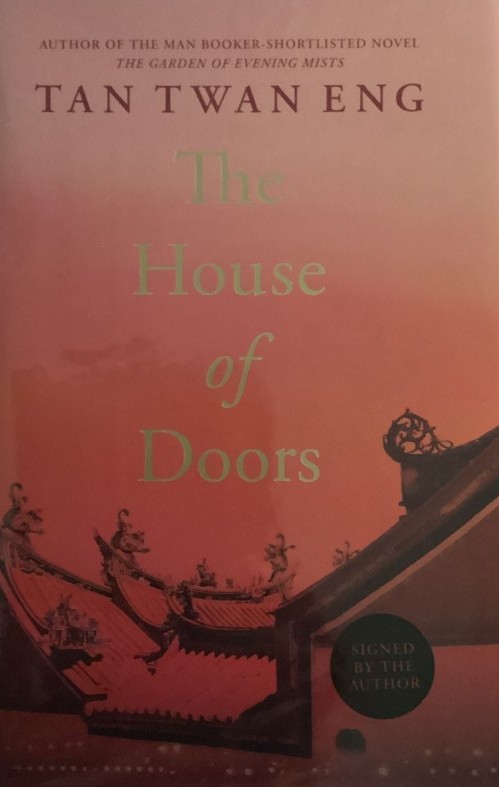Inspiring Older Readers
 posted on 28 Jan 2024
posted on 28 Jan 2024
The House of Doors by Tan Twan Eng
This is a novel that is complex, literary, multi-layered and magnetically readable. Set in Malaysia in the early 1920s it combines the fictional account of the author, W. Somerset Maugham’s visit to Penang to spend some time with his friend, Robert Hamlyn and his wife Lesley. It also includes the interweaving stories of real-life dramas of the period – a domestic murder involving a woman called Ethel Proudlock and the story of the Chinese political agitator, Sun Yat Sen bent on freeing his country from imperial misrule. As if that is not a rich enough diet, Tan Twan Eng includes the private dramas of Maugham’s potential bankruptcy, divorce (or maybe non-divorce would be more accurate) and his homosexual relationship with his ‘secretary’, Gerald Haxton.
The narrative switches focus between Lesley Hamlyn and Maugham and we get a faceted story of love, betrayal and tragedy which is all bundled up under the uncomfortable blanket of colonial rule. The poison and corruption of colonial rule is as tangible as the humid heat of the country – a humidity that is literally killing Robert Hamlyn whose lungs have been wrecked by a wartime exposure to poison gas. The Ethel Proudlock affair – which will later provide the real Maugham with a storyline for one of his pieces of fiction – is presented (slightly out of actual chronological time order) in detail and seems to embody all that is wrong with colonial rule. Xan Brooks, reviewing the book for The Guardian, usefully summarises the Proudlock scandal thus:
“On the night of 23 April 1911, Ethel Proudlock took her husband’s revolver and shot a man dead at her house in Malaysia. She claimed the victim, William Steward, had arrived unannounced and attempted to kiss her. But her trial pointed to a deeper story, one that lifted the lid on the culture that spawned it. Proudlock was a member of Kuala Lumpur’s expat community, a conservative outpost nicknamed Cheltenham-on-the-Equator. Her rumoured infidelity, combined with her concealed mixed-race background, made her a pariah. The killing was seen as almost the least of her crimes.”
Lesley Hamlyn counts herself a friend of Ethel’s and finds herself wrapped up in the legal case that follows. But Lesley’s conscience is not sanguine because she herself has been involved in an affair – with a ‘native’ working for Sun Yat Sen’s political organisation in exile. The two meet in a secret location that they name The House of Doors and is a passion that Lesley will take with her eventually to a new life in the warm and arid atmosphere of South Africa where her husband will find relief from the damaging climate that has so compromised his lungs.
Lesley unburdens all of her story to Maugham while he spends time with the Hamlyns as a house guest. Lesley knows that Maugham is an emotional and creative vampire and will undoubtedly use her confessions and Ethel Proudlock’s story as grist to his writing mill. Somewhere deep inside she not only expects it but in a slightly perverse way, welcomes it. As Lesley looks back on all these events she discovers that Maugham, however, shows himself to be more discrete and loyal than might have been expected.
Tan’s writing is capable of creating very different moods. He moves seamlessly from real crime reportage to lyrical evocation of place and on to quite brilliantly realised internal monologues.
I think it’s worth finishing with another quotation from Xan Brook’s review because it provides an excellent overview:
“It’s a book about memory, loss and cultural dissonance; a high-flown tragedy that sideslips through the decades and passes the narrative baton between Lesley and Maugham. While Tan – born in Penang of Straits Chinese descent – is deliberately writing in the voice of the oppressor, he generally does so with care, conscious of the limits of his characters’ language and worldview. If colonial Malaysia is a pastiche of middle-class England, his drama is its costumed morality play.”
The book is currently only available as a hardback but I would imagine the paperback will be along soon. You may wish to wait for that but the hardback would be a good investment because I’m sure this will be a book to read more than once.
Terry Potter
January 2024